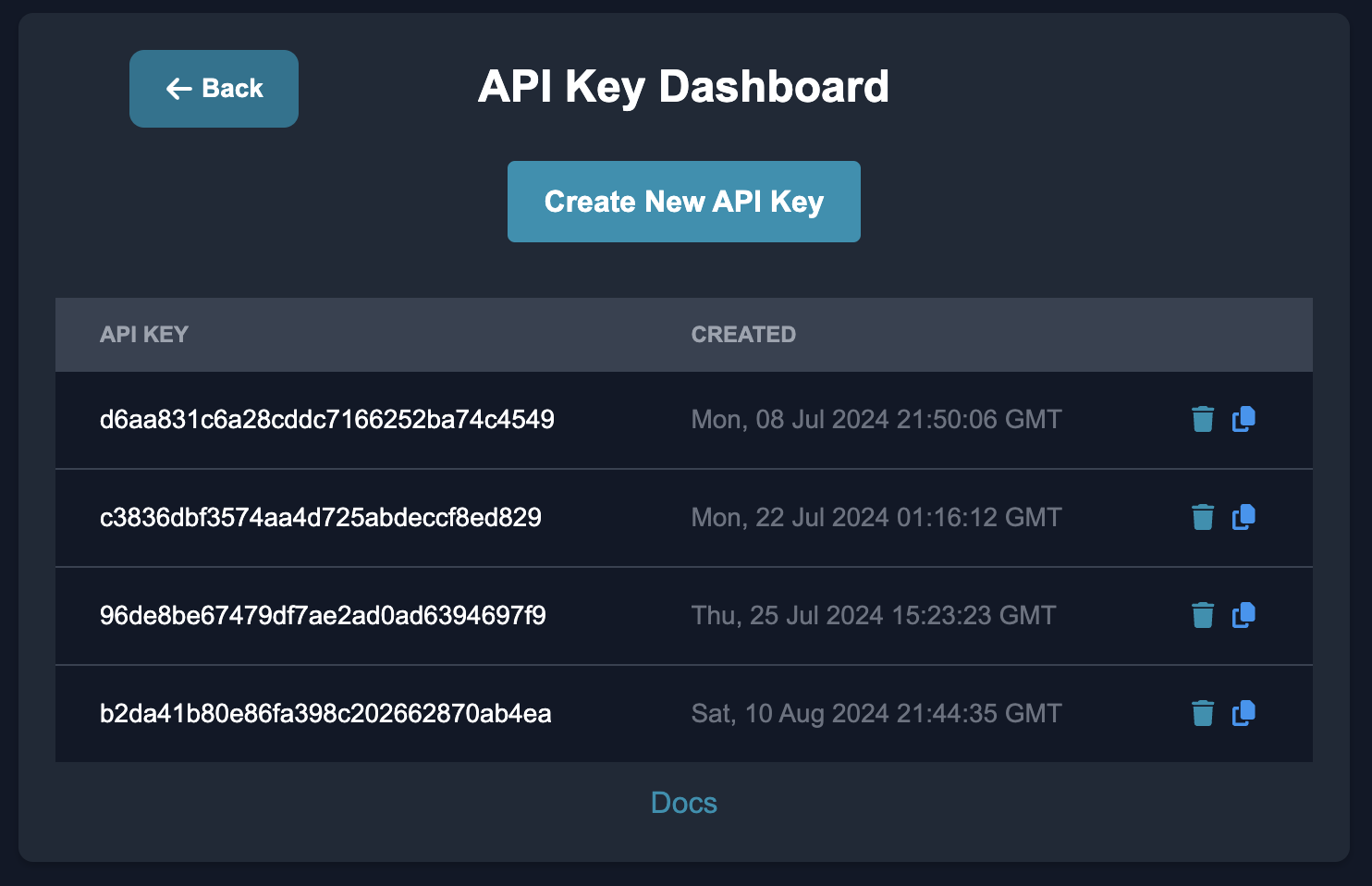Overview
The Anote API is a software developer kit designed for developers to leverage LLMs to train models, make predictions and evaluate the output. There are 3 main API endpoints:
-
Train: Train / Fine Tune LLM.
-
Predict: Do Model Inference on Trained / Zero Shot Models.
-
Evaluate: Evaluate different LLMs to measure performance.
Setup
This setup guide is designed to help get your local development environment setup and send your first API request. Throughout this guide, you will learn:
- How to setup your Anote account
- How to install the Anote Python Pip Package
- How to send your first Anote API request
Step 1: Account setup
First, create an Anote (https://anote.ai/) account or sign in. Next, navigate to the API key page and press the Create new API key button to generate a new API key.

Copy the API key, and make sure to save this somewhere safe and do not share it with anyone.
Step 2: Installing Python Pip Package
To use the Anote Python library, you need to have Python installed. To ensure you have Python installed, navigate to your Terminal or Command line:
-
MacOS: Open Terminal: You can find it in the Applications folder or search for it using Spotlight (Command + Space).
-
Windows: Open Command Prompt: You can find it by searching "cmd" in the start menu.
Next, enter python3 --version and then press enter, to ensure you see a python version >3.7.
To install the Private Chatbot Python library from the terminal / command line, run:
Step 3: Sending your first API request
After you have Python configured and set up an API key, the final step is to send a request to the Anote API using the Python library. To do this, create a file named anote-test.py using the terminal or an IDE.
Inside the file, copy and paste the example below:
You should obtain an anote object.Supported Models and Tasks
The code below contains the supported model types, task types, and evaluation metrics in our current SDK.
Bases: IntEnum